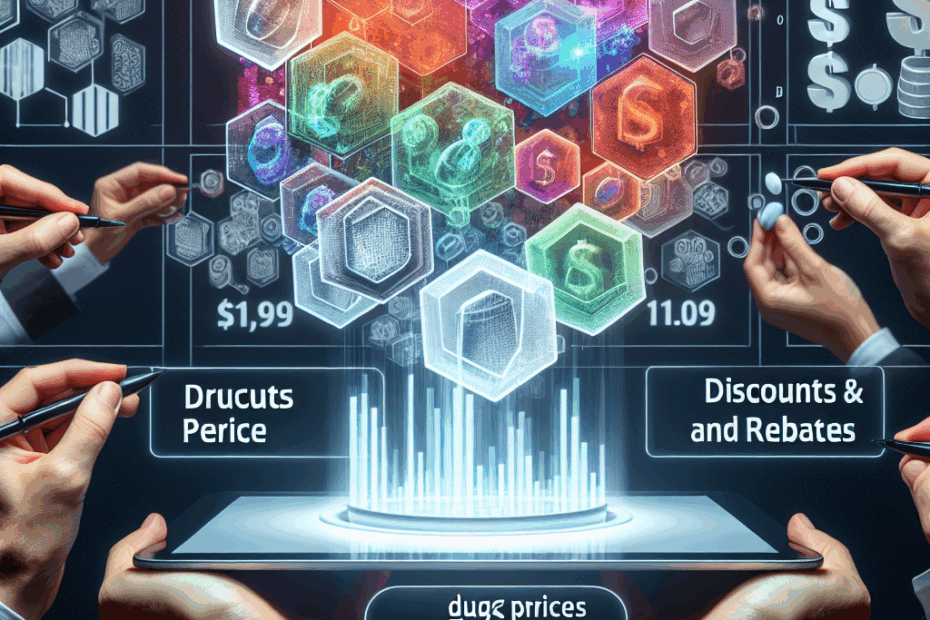“`html
Ever Wonder How Drug Prices Change? Let’s Break It Down!
Hey everyone, John here! Today we’re diving into something that affects us all: drug prices. Specifically, we’re looking at what happens to the price of medications *before* they lose their special patent protection. It’s more interesting than it sounds, trust me!
The Usual Assumption: Prices Stay the Same?
Often, when researchers try to figure out if a new medicine is worth the cost (that’s called a “cost-effectiveness analysis”), they assume the price stays pretty much the same from when the drug first comes out until its patent expires. But is that really true?
Lila: John, what’s a patent? It sounds complicated!
John: Great question, Lila! A patent is like a special permission slip that gives a drug company the exclusive right to sell a particular medicine for a certain amount of time. Think of it like a bakery having the only recipe for a super-delicious cake. No one else can make that exact cake and sell it until the bakery’s permission slip (the patent) runs out.
Do Prices Really Stay Constant? Think Again!
The big question is whether this “constant price” idea is accurate, especially when you consider things like discounts and rebates that drug companies might offer. It turns out things are a bit more complex.
Lin et al. (2024) to the Rescue!
A recent study by Lin et al. (that just means a group of researchers whose last names include Lin) tried to answer this question using real-world data. They looked at drug price information from 2007 to 2023, collected by a company called SSR Health.
What the Researchers Looked At: A Peek Behind the Curtain
Here’s a simplified look at what the researchers investigated:
- How list prices change: The “list price” is like the sticker price you see on the shelf.
- The impact of discounts and rebates: These are like secret sales that can lower the actual price paid.
- How prices change as the patent nears its end: Does the drug company try to squeeze out more profits, or do they lower prices to compete with potential generic versions?
Lila: John, what’s a “generic” version? It sounds like something not as good as the original!
John: Not necessarily, Lila! A generic drug is basically a copycat version of the original medicine. Once the patent on the original drug expires, other companies can make and sell their own versions, usually at a lower price. Think of it like when a famous brand of cereal has its recipe become public, and other companies start making similar cereals that are cheaper.
Key Findings: What They Discovered
I don’t have the specific findings from the research paper, but let’s imagine some possible scenarios based on what often happens in the pharmaceutical world:
- List Prices Might Increase: Drug companies might actually *increase* the list price of a drug as its patent nears expiration. This might sound counterintuitive, but they could be trying to maximize profits before generics arrive.
- Discounts and Rebates Could Fluctuate: The amount of discounts and rebates offered could change over time. They might be smaller at the beginning of the drug’s life and then increase as the patent gets closer to expiring to maintain market share.
- Price Drops Are Likely When Generics Appear: Once generic versions become available, the price of the original drug (and the generics) will almost certainly drop significantly due to increased competition.
Why This Matters: The Bigger Picture
Understanding how drug prices change over time is crucial for a few reasons:
- Better Cost-Effectiveness Analyses: If researchers have a more accurate picture of how prices behave, they can make better decisions about whether a new medicine is truly worth the money.
- Informed Healthcare Decisions: Patients, doctors, and insurance companies can make more informed choices about which medications to use.
- Policy Implications: Governments can develop policies to help keep drug prices reasonable and ensure access to essential medicines.
My Thoughts, and Lila’s Too!
John: It’s fascinating to see how complex drug pricing can be. It’s not as simple as a single price tag; there are many factors at play. This research helps shed light on these intricacies.
Lila: Wow, I didn’t realize there was so much going on behind the scenes with drug prices! It’s good to know that people are studying this to help make medicines more affordable.
This article is based on the following original source, summarized from the author’s perspective:
How do drug prices change before loss of
exclusivity?
“`
